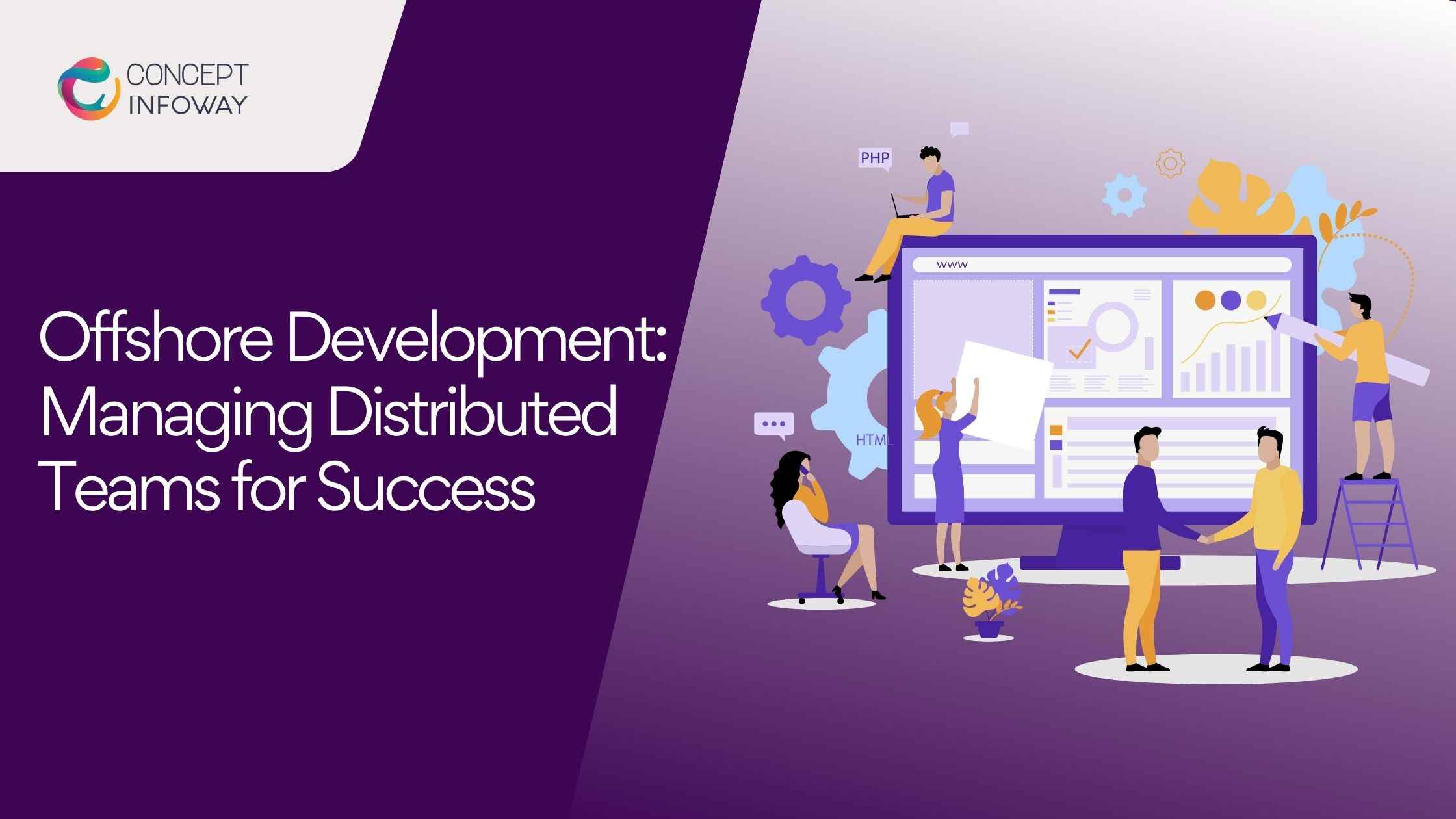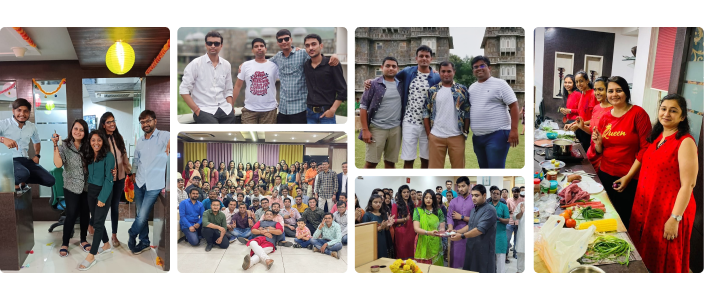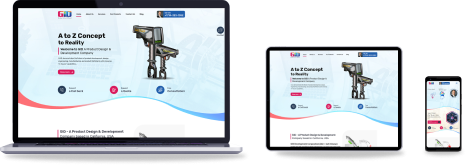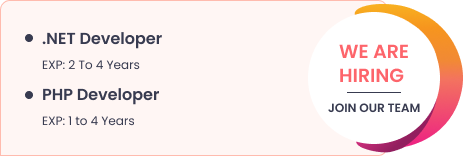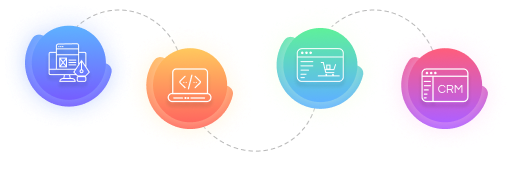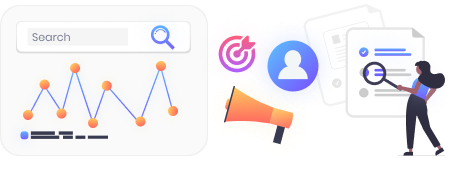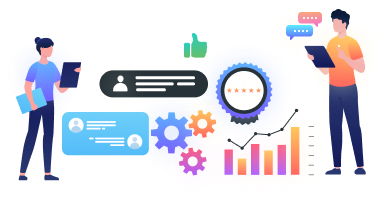
CMS Web Development Trends to Watch in 2025
The digital landscape is in constant flux, and Content Management Systems (CMS) are no exception. As businesses increasingly rely on their online presence for growth and engagement, staying ahead of the curve in CMS web development is paramount. 2025 promises to be a year of significant evolution in how we build, manage, and experience websites. This article delves into the key CMS web development trends you need to watch to ensure your online strategy remains cutting-edge and effective. Understanding these trends will be crucial for businesses looking to leverage the power of Custom CMS development services and create impactful CMS website designs.
The Evolving Landscape of CMS Web Development
Before diving into specific trends, it is important to understand the broader context of CMS Web Development. Traditionally, CMS platforms were primarily used for managing website content. However, the role of a CMS has expanded dramatically. Today, a robust CMS Development strategy is the backbone of digital experiences, encompassing everything from content creation and management to e-commerce functionality, marketing automation, and personalized user experiences. This evolution is driven by several factors:
The Rise of Headless CMS
Decoupling the front-end (presentation layer) from the back end (content repository) has opened up new possibilities for delivering content across various platforms and devices. Unlike traditional monolithic CMS solutions, headless CMS in CMS Development services offers flexibility by allowing content to be delivered seamlessly via APIs to websites, mobile applications, IoT devices, and other digital touchpoints. This architecture enables developers to create rich, interactive, and dynamic user experiences while allowing content managers to maintain centralized control over their assets.
The Growing Importance of Personalization
Users expect tailored experiences, and CMS Web Development platforms are increasingly incorporating features that enable personalized content delivery. AI-powered personalization engines analyse user behaviour, preferences, and interactions to dynamically adjust content in real-time. By leveraging machine learning and behavioural data, businesses can enhance user engagement, drive conversions, and improve overall customer satisfaction through personalized CMS Development solutions.
Top CMS Web Development Trends of 2025 !
Contact Us Today!The Demand for Omnichannel Experiences
Businesses need to reach their audience wherever they are, whether it is on their website, mobile app, social media, or other digital channels. Modern CMS Development platforms are evolving to support this omnichannel approach, ensuring that content is distributed consistently across multiple touchpoints. With the rise of AI-driven content automation and content-as-a-service (CaaS) in CMS Web Development, organizations can efficiently manage and repurpose content across various platforms without duplicating efforts.
The Need for Agility and Scalability
Businesses must adapt quickly to changing market conditions and scale their online presence as they grow. Traditional CMS solutions often require significant development efforts to accommodate scalability. However, modern cloud-based and headless CMS Development platforms offer auto-scaling capabilities, microservices architectures, and API-first frameworks that allow enterprises to expand their digital footprint effortlessly. Additionally, the integration of low-code/no-code tools within CMS Web Development empowers non-technical users to make updates and modifications without heavy reliance on development teams.
Enhanced Security and Compliance
With the increasing number of cyber threats and stringent regulatory requirements, CMS Web Development security has become a top priority. New-generation CMS platforms are implementing advanced security measures, including multi-factor authentication (MFA), end-to-end encryption, automated security patches, and compliance monitoring tools. Additionally, data privacy laws such as GDPR and CCPA are influencing Web Development vendors to provide built-in features that ensure user data protection and regulatory compliance.
The Integration of AI and Automation
Artificial intelligence is playing a transformative role in CMS Web Development. AI-powered chatbots, automated content recommendations, and natural language processing (NLP) capabilities are making content creation and management more efficient. Predictive analytics tools help marketers understand user behaviour patterns, allowing them to optimize content strategies in real time. AI is also enhancing accessibility by offering automated transcriptions, voice search optimization, and intelligent image tagging, further solidifying the role of AI in CMS Web Development.
Sustainable Web Development and Green CMS
Sustainability is becoming a key focus in CMS Web Development. Companies are increasingly adopting eco-friendly practices by optimizing website performance, reducing server energy consumption, and leveraging green hosting providers. Sustainable CMS Web Development platforms are incorporating features such as image compression, lazy loading, and static site generation to minimize the carbon footprint of digital operations. Sustainable CMS Web Development not only benefits the environment but also enhances website speed and user experience.
Future Outlook
The CMS Web Development landscape is continuously evolving to meet the demands of modern digital ecosystems. As technology advances, we can expect further innovations in AI-driven automation, enhanced security frameworks, and deeper integration with emerging technologies like blockchain and AR/VR. Organizations that embrace these changes and leverage the right CMS Web Development solutions will be well-positioned to deliver exceptional digital experiences and maintain a competitive edge in the ever-evolving online world.
Read Also: The Role of Excellent User Experience (UX) in Custom CMS Design
Key CMS Web Development Trends for 2025
AI-Powered CMS Development
Artificial intelligence (AI) has transformed numerous industries, and CMS web development is no exception. AI-driven CMS solutions are making content management more intuitive, efficient, and automated. Key advancements include:
- AI-Generated Content: AI-powered tools assist in creating high-quality content, optimizing SEO, and personalizing user experiences.
- Chatbots & Virtual Assistants: Integration of AI-powered chatbots within CMS platforms enhances customer engagement and automates support.
- Automated SEO Enhancements: AI-driven insights help businesses optimize their content for search engines with minimal mensural effort.
- Predictive Analytics: AI tools analyze user behavior patterns to anticipate trends and suggest content strategies.
- Automated Image & Video Tagging: AI-powered CMS platforms can auto-tag images and videos to improve accessibility and content discoverability.
Headless CMS & Decoupled Architectures
Headless CMS is gaining traction as businesses prioritize flexibility in CMS web design. Unlike traditional CMS platforms, a headless CMS separates the backend from the frontend, allowing developers to deliver content across multiple channels seamlessly.
- Omnichannel Content Delivery: A headless CMS enables content distribution across websites, mobile apps, IoT devices, and more.
- Faster Performance: Decoupling content management from frontend design enhances website speed and scalability.
- API-First Approach: RESTful and Graph QL APIs provide seamless integration with various frontend technologies.
- Better Developer Experience: Headless CMS platforms allow developers to use their preferred frontend frameworks without CMS constraints.
- Scalability: Businesses can scale their digital presence more efficiently without compromising performance.
Enhanced Security Measures in CMS Development
As cybersecurity threats evolve, CMS platforms are incorporating advanced security features to safeguard sensitive data. The latest security enhancements in CMS web development include:
- Multi-Factor Authentication (MFA): Strengthens security by requiring multiple verification steps.
- Blockchain-Based Security: Some CMS platforms integrate blockchain technology to enhance data integrity.
- AI-Driven Threat Detection: AI-powered security solutions monitor and prevent potential cyber threats in real-time.
- Zero Trust Architecture (ZTA): Implementing a “never trust, always verify” approach to CMS security.
- Regular Security Audits: Automated tools ensure continuous monitoring for vulnerabilities and compliance.
Progressive Web Apps (PWA) and CMS Integration
Progressive Web Apps (PWAs) have gained popularity due to their fast-loading times, offline functionality, and improved user experience. CMS platforms are integrating PWA capabilities to provide businesses with:
- Faster Load Times: PWAs offer near-instant loading speeds, improving user engagement and retention.
- Offline Access: Users can access content even without an internet connection.
- Enhanced Mobile Experience: PWAs deliver app-like experiences on mobile devices without requiring installations.
- Push Notifications: PWAs allow websites to send notifications like native apps, increasing user engagement.
- SEO Benefits: PWAs are indexed by search engines, ensuring better visibility and reach.
Personalization & AI-Driven User Experience
Personalization remains a top priority for businesses leveraging CMS development services. In 2025, AI-driven CMS platforms offer advanced personalization features:
- Behavioral Analytics: AI-driven insights help tailor content based on user behavior and preferences.
- Dynamic Content Delivery: Adaptive content recommendations enhance user engagement.
- Voice Search Optimization: CMS platforms are optimizing content for voice search, catering to the growing number of voice-assisted searches.
- Hyper-Personalization: AI-driven systems provide unique experiences tailored to individual users.
- AI-Powered A/B Testing: Optimizing content layouts and messaging for improved engagement.
Low-Code & No-Code CMS Development
The demand for low-code and no-code CMS platforms continues to rise, empowering businesses and non-technical users to build and manage websites effortlessly.
- Drag-and-Drop Builders: Simplifies CMS website design with visual editing tools.
- Pre-Built Templates: Offers ready-to-use website designs with customization options.
- Seamless Integrations: Connects with third-party tools and services without complex coding.
- Workflow Automation: Simplifies repetitive tasks with automated workflows and triggers.
- Enhanced Collaboration: Multi-user collaboration tools streamline content creation and approvals.
Sustainable & Eco-Friendly Web Development
Sustainability in CMS web development is becoming a priority as businesses focus on reducing their carbon footprint.
- Green Hosting Solutions: Cloud-based CMS platforms powered by renewable energy.
- Efficient Code Optimization: Reducing unnecessary code to enhance performance and energy efficiency.
- Sustainable UX/UI Design: Designing websites with eco-friendly practices to minimize energy consumption.
- Dark Mode Implementations: Reducing screen energy consumption for better sustainability.
- Eco-Friendly Data Centers: Partnering with providers that use renewable energy sources.
Voice-Enabled CMS & Conversational Interfaces
With the rise of smart assistants, CMS platforms are adapting to support voice-based interactions and content delivery.
- Voice Search Optimization: Enhancing content for voice-assisted queries.
- AI-Powered Voice Assistants: Integrating with CMS for interactive content management.
- Speech-to-Text Capabilities: Enabling hands-free content creation and management.
- Multilingual Voice Support: Expanding content accessibility to global audiences.
Augmented Reality (AR) & Virtual Reality (VR) in CMS
Immersive experiences are becoming a part of modern web development, and CMS platforms are integrating AR/VR capabilities.
- Interactive Product Demos: Allowing users to engage with products in a virtual space.
- 360-Degree Content Support: Enabling panoramic and interactive media experiences.
- VR-Enabled E-Commerce: Providing virtual showrooms and shopping experiences.
- AR-Based Navigation: Enhancing wayfinding and interactive website elements.
Blockchain-Based Content Management
Blockchain technology is making its way into CMS solutions to enhance transparency, security, and data integrity.
- Decentralized Content Storage: Preventing single points of failure in content management.
- Smart Contracts for Content Licensing: Automating content ownership verification and payments.
- Immutable Content Records: Enhancing data integrity and content authenticity.
- Token-Based Access Control: Providing secure and decentralized user access management.
As CMS web development continues to evolve, these trends highlight the future of content management, user engagement, and digital experiences in 2025. Staying ahead of these advancements will be crucial for businesses looking to maximize their digital presence.
Read Also : Types of Software for Custom CMS Development: What to Know
Why Choose Concept Infoway as the Right CMS Solution for Your Needs?
Selecting the right CMS provider is crucial for ensuring optimal performance, security, and scalability. Concept Infoway stands out as a leading provider of CMS development services, offering cutting-edge solutions tailored to business needs.
Expertise in Custom CMS Solutions
Concept Infoway specializes in developing custom CMS development platforms, ensuring seamless functionality and scalability for businesses of all sizes.
Comprehensive CMS Website Design Services
From responsive website design to advanced UX/UI development, Concept Infoway delivers visually appealing and user-friendly CMS solutions.
Security & Compliance
With a focus on cybersecurity, Concept Infoway implements robust security protocols to protect websites from threats and vulnerabilities.
AI-Driven Innovations
Harnessing AI technology, Concept Infoway integrates automation, personalization, and advanced analytics into CMS platforms to enhance user experiences.
24/7 Support & Maintenance
Concept Infoway provides round-the-clock support, ensuring websites remain operational, secure, and up to date with the latest industry trends.
Scalable & Future-Ready Solutions
With a future-proof approach, Concept Infoway develops CMS platforms that can easily adapt to evolving business needs and technological advancements.
Frequently Asked Questions – FAQs
What is CMS web development?
CMS web development refers to building websites using a Content Management System (CMS), which allows users to create, manage, and modify digital content without needing advanced coding skills. It streamlines website management, enabling businesses to update content, add pages, and enhance functionality easily. At Concept Infoway, we specialize in CMS solutions tailored to your needs, ensuring scalability, security, and a seamless user experience.
Is CMS better than HTML?
A CMS is generally better than static HTML for businesses that need frequent content updates, user-friendly management, and scalability. While HTML websites are lightweight and highly customizable, they require coding expertise. CMS platforms offer built-in features, plugins, and themes that simplify development and maintenance. Concept Infoway helps businesses leverage CMS solutions to build dynamic, high-performing websites that align with their goals and branding.
What are the top 3 CMS?
The top three CMS platforms are:
- WordPress – The most popular CMS, offering flexibility, plugins, and themes.
- Drupal – Known for its security, scalability, and customization options.
- Joomla – A powerful CMS with extensive features for complex websites.
Concept Infoway provides expert CMS web development services, helping you choose the right platform to enhance your online presence with a robust, feature-rich website.
What is the best CMS for my website?
The best CMS depends on your business needs, budget, and functionality requirements. WordPress is ideal for blogs and small businesses, while Drupal and Joomla suit complex websites with advanced customization. Headless CMS solutions are great for omnichannel experiences. Concept Infoway experts analyse your requirements and recommend the most suitable CMS platform, ensuring a scalable, secure, and high-performance website for your business.
What is a CMS example?
A CMS is a platform that enables website management without coding knowledge. Examples include WordPress, Drupal, Joomla, and Shopify for eCommerce. These platforms provide intuitive dashboards, pre-built themes, and plugins to customize and optimize websites easily. At Concept Infoway, we offer custom CMS solutions that ensure efficiency, security, and seamless digital experiences for businesses of all sizes.
Is WordPress the same as CMS?
WordPress is a type of CMS, but not all CMS platforms are WordPress. While WordPress dominates the market due to its user-friendly interface and vast plugin ecosystem, other CMS options like Drupal and Joomla cater to different needs. Concept Infoway specializes in developing WordPress and other CMS-powered websites, ensuring your business gets a tailored, high-performance digital solution.
Do I need a CMS for my website?
If you want to manage your website easily, update content frequently, and scale your business online, a CMS is essential. A CMS allows non-technical users to modify content without coding skills, making website management efficient. Concept Infoway provides expert CMS web development services, helping businesses create responsive, secure, and user-friendly websites that drive engagement and growth.
Conclusion
As we navigate 2025, CMS web development is witnessing rapid transformations driven by AI, security advancements, personalization, and sustainability. Businesses must embrace these trends to stay ahead of the competition and deliver seamless digital experiences.
Partnering with a trusted CMS provider like Concept Infoway ensures access to cutting-edge CMS development services and industry-leading expertise. Whether you need a robust CMS website design or a scalable headless CMS solution, Concept Infoway is the ideal choice to meet your evolving digital needs.
Stay ahead in the ever-changing digital landscape by leveraging the latest CMS web development trends and partnering with experts who understand the future of content management.
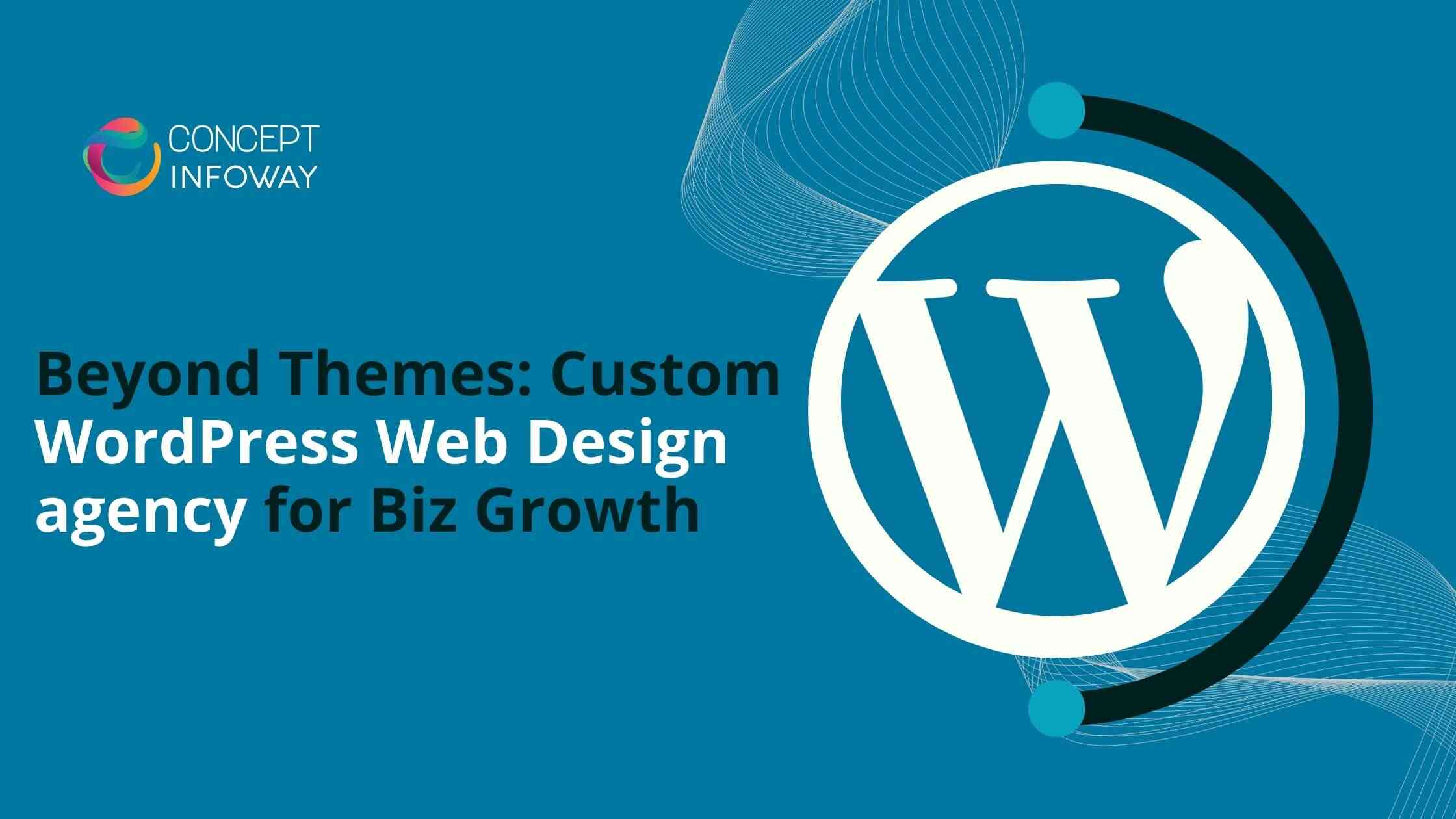
Beyond Themes: Custom WordPress Web Design for Biz Growth
